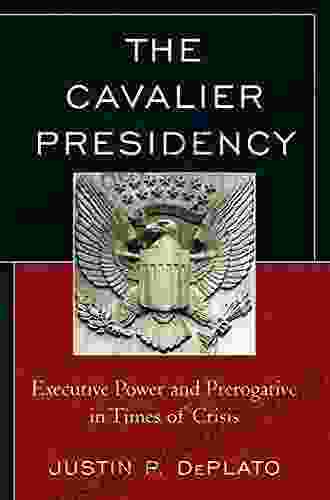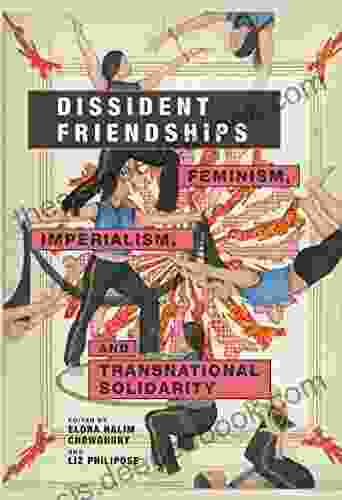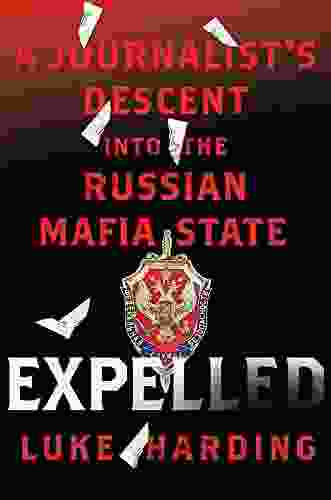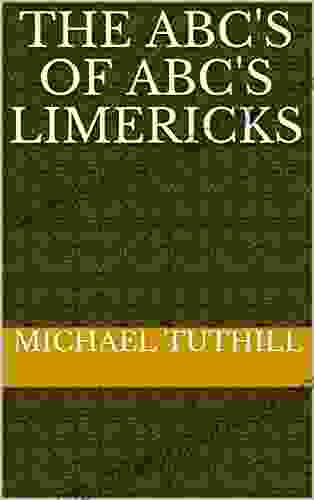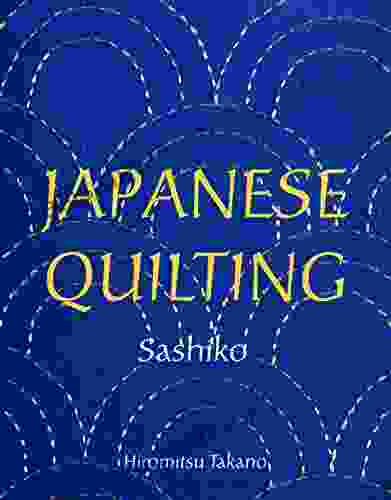Executive Power and Prerogative in Times of Crisis: A Comparative Analysis of the United States, United Kingdom, and Canada

In times of crisis, the executive branch of government often plays a central role in responding to the emergency. This is due in part to the executive's ability to act quickly and decisively, as well as its control over the resources and personnel necessary to address the crisis. However, the executive's expanded powers during a crisis can also raise concerns about the potential for abuse.
4.5 out of 5
| Language | : | English |
| File size | : | 1024 KB |
| Text-to-Speech | : | Enabled |
| Screen Reader | : | Supported |
| Enhanced typesetting | : | Enabled |
| Word Wise | : | Enabled |
| Print length | : | 364 pages |
| Hardcover | : | 294 pages |
| Item Weight | : | 12.52 pounds |
| Dimensions | : | 6.14 x 0.69 x 9.21 inches |
This article will examine the executive power and prerogative in times of crisis in three different countries: the United States, the United Kingdom, and Canada. We will compare the legal frameworks and political institutions that govern the exercise of executive power in each country, and we will assess the potential for abuse in each case.
The United States
In the United States, the president has a wide range of powers to respond to crises. These powers are derived from the Constitution, which grants the president the power to "take care that the laws be faithfully executed" and to "be commander-in-chief of the Army and Navy of the United States." In addition, the president has the power to declare a national emergency, which gives him additional powers to deal with the crisis.
The president's powers during a crisis are not unlimited. Congress can pass laws to limit the president's authority, and the courts can review the president's actions to ensure that they are consistent with the Constitution. However, in practice, the president has a great deal of discretion in how he responds to a crisis.
The potential for abuse of executive power during a crisis is a serious concern. In the past, presidents have used their emergency powers to justify actions that would not have been possible under normal circumstances. For example, President Abraham Lincoln suspended the writ of habeas corpus during the Civil War, and President Franklin D. Roosevelt interned Japanese-Americans during World War II.
To guard against the potential for abuse, the United States has a system of checks and balances that limits the president's power. Congress can pass laws to limit the president's authority, and the courts can review the president's actions to ensure that they are consistent with the Constitution. In addition, the media and the public can play a role in holding the president accountable for his actions.
The United Kingdom
In the United Kingdom, the prime minister has a wide range of powers to respond to crises. These powers are derived from the royal prerogative, which is a body of powers that are vested in the monarch but are exercised by the prime minister. The royal prerogative includes the power to declare war, to make treaties, and to deploy the armed forces.
The prime minister's powers during a crisis are not unlimited. Parliament can pass laws to limit the prime minister's authority, and the courts can review the prime minister's actions to ensure that they are consistent with the law. However, in practice, the prime minister has a great deal of discretion in how he responds to a crisis.
The potential for abuse of executive power during a crisis is a serious concern. In the past, prime ministers have used their emergency powers to justify actions that would not have been possible under normal circumstances. For example, Prime Minister David Lloyd George suspended the writ of habeas corpus during World War I, and Prime Minister Margaret Thatcher imposed martial law in Northern Ireland during the Troubles.
To guard against the potential for abuse, the United Kingdom has a system of checks and balances that limits the prime minister's power. Parliament can pass laws to limit the prime minister's authority, and the courts can review the prime minister's actions to ensure that they are consistent with the law. In addition, the media and the public can play a role in holding the prime minister accountable for his actions.
Canada
In Canada, the prime minister has a wide range of powers to respond to crises. These powers are derived from the Constitution, which grants the prime minister the power to "take care that the laws be faithfully executed" and to "be commander-in-chief of the Canadian Forces." In addition, the prime minister has the power to declare a national emergency, which gives him additional powers to deal with the crisis.
The prime minister's powers during a crisis are not unlimited. Parliament can pass laws to limit the prime minister's authority, and the courts can review the prime minister's actions to ensure that they are consistent with the Constitution. However, in practice, the prime minister has a great deal of discretion in how he responds to a crisis.
The potential for abuse of executive power during a crisis is a serious concern. In the past, prime ministers have used their emergency powers to justify actions that would not have been possible under normal circumstances. For example, Prime Minister Pierre Trudeau imposed martial law in Quebec during the October Crisis.
To guard against the potential for abuse, Canada has a system of checks and balances that limits the prime minister's power. Parliament can pass laws to limit the prime minister's authority, and the courts can review the prime minister's actions to ensure that they are consistent with the Constitution. In addition, the media and the public can play a role in holding the prime minister accountable for his actions.
The executive branch of government plays a central role in responding to crises. However, the executive's expanded powers during a crisis can also raise concerns about the potential for abuse. In the United States, the United Kingdom, and Canada, there are a number of checks and balances in place to limit the executive's power. However, it is important to remain vigilant and to hold the executive accountable for its actions.
4.5 out of 5
| Language | : | English |
| File size | : | 1024 KB |
| Text-to-Speech | : | Enabled |
| Screen Reader | : | Supported |
| Enhanced typesetting | : | Enabled |
| Word Wise | : | Enabled |
| Print length | : | 364 pages |
| Hardcover | : | 294 pages |
| Item Weight | : | 12.52 pounds |
| Dimensions | : | 6.14 x 0.69 x 9.21 inches |
Do you want to contribute by writing guest posts on this blog?
Please contact us and send us a resume of previous articles that you have written.
 Book
Book Novel
Novel Page
Page Chapter
Chapter Text
Text Reader
Reader Library
Library E-book
E-book Magazine
Magazine Sentence
Sentence Bookmark
Bookmark Shelf
Shelf Foreword
Foreword Preface
Preface Synopsis
Synopsis Footnote
Footnote Manuscript
Manuscript Codex
Codex Tome
Tome Bestseller
Bestseller Library card
Library card Biography
Biography Autobiography
Autobiography Memoir
Memoir Encyclopedia
Encyclopedia Character
Character Resolution
Resolution Stacks
Stacks Archives
Archives Research
Research Scholarly
Scholarly Academic
Academic Reading Room
Reading Room Rare Books
Rare Books Interlibrary
Interlibrary Study Group
Study Group Dissertation
Dissertation Storytelling
Storytelling Theory
Theory Textbooks
Textbooks Alison Lyke
Alison Lyke Will Michaels
Will Michaels Roman Plesky
Roman Plesky Jonathan Arnold
Jonathan Arnold Susan Johnson
Susan Johnson Jean Pierre Chavoin
Jean Pierre Chavoin Cheryl Deines
Cheryl Deines Lawrence Shainberg
Lawrence Shainberg Thomas Barnes Md
Thomas Barnes Md Herbert J Stern
Herbert J Stern Emma Sibley
Emma Sibley Cornel Bonca
Cornel Bonca Barnabas Chiboboka
Barnabas Chiboboka 7th Edition Kindle Edition
7th Edition Kindle Edition Michael Stewart Foley
Michael Stewart Foley Donald Sheneberger
Donald Sheneberger Corlet Dawn
Corlet Dawn Lene Nielsen
Lene Nielsen Kristen Proby
Kristen Proby Jukka Aalho
Jukka Aalho
Light bulbAdvertise smarter! Our strategic ad space ensures maximum exposure. Reserve your spot today!

 Jerome PowellDiamonds and Triangles Pen Wrap, Lip Balm Cover, and Lighter Cover: Beaded...
Jerome PowellDiamonds and Triangles Pen Wrap, Lip Balm Cover, and Lighter Cover: Beaded...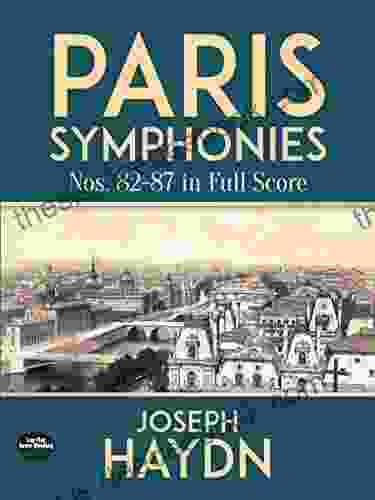
 Rudyard KiplingParis Symphonies Nos. 82 & 87 in Full Score: A Comprehensive Analysis of...
Rudyard KiplingParis Symphonies Nos. 82 & 87 in Full Score: A Comprehensive Analysis of... Orson Scott CardFollow ·4.7k
Orson Scott CardFollow ·4.7k Hector BlairFollow ·12.8k
Hector BlairFollow ·12.8k Willie BlairFollow ·10.3k
Willie BlairFollow ·10.3k Jeff FosterFollow ·12.6k
Jeff FosterFollow ·12.6k Cole PowellFollow ·3.8k
Cole PowellFollow ·3.8k Chad PriceFollow ·10.1k
Chad PriceFollow ·10.1k Clark CampbellFollow ·17.7k
Clark CampbellFollow ·17.7k Milan KunderaFollow ·18.1k
Milan KunderaFollow ·18.1k
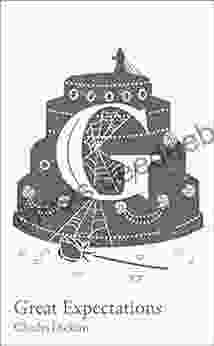
 Russell Mitchell
Russell MitchellGCSE Set Text Student Edition: Collins Classroom Classics...
The GCSE Set Text Student Edition: Collins...

 Ralph Turner
Ralph TurnerSix Sigma Lean Green Belt Training for Beginners with...
What is Six...

 Travis Foster
Travis Foster10 Life-Changing Lessons I Learned When I Was Single
Being single can...

 Jermaine Powell
Jermaine PowellOne Great Insight Is Worth a Thousand Good Ideas
In the competitive and...
4.5 out of 5
| Language | : | English |
| File size | : | 1024 KB |
| Text-to-Speech | : | Enabled |
| Screen Reader | : | Supported |
| Enhanced typesetting | : | Enabled |
| Word Wise | : | Enabled |
| Print length | : | 364 pages |
| Hardcover | : | 294 pages |
| Item Weight | : | 12.52 pounds |
| Dimensions | : | 6.14 x 0.69 x 9.21 inches |


